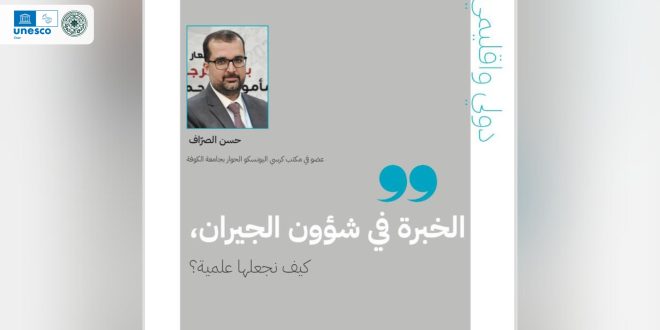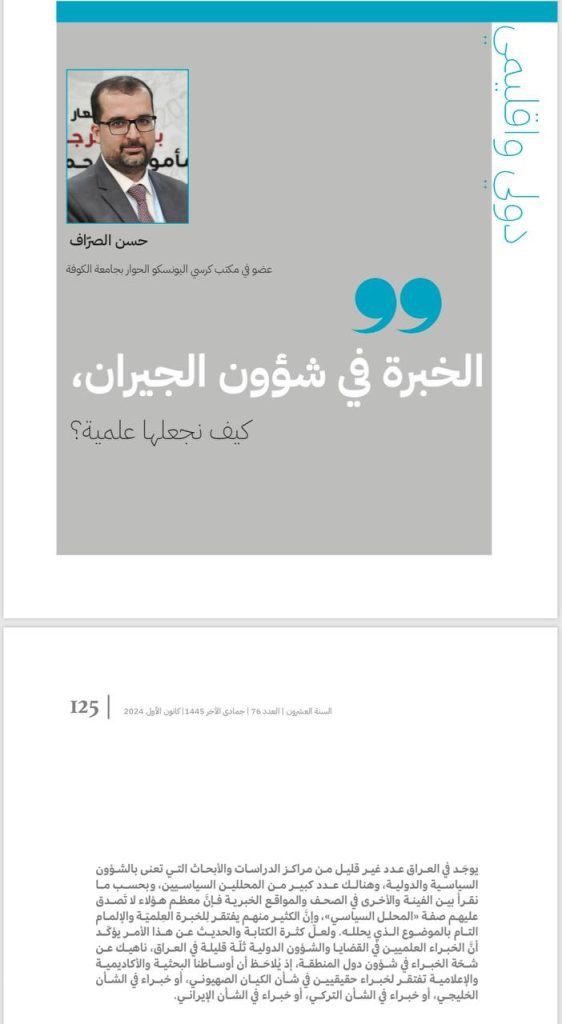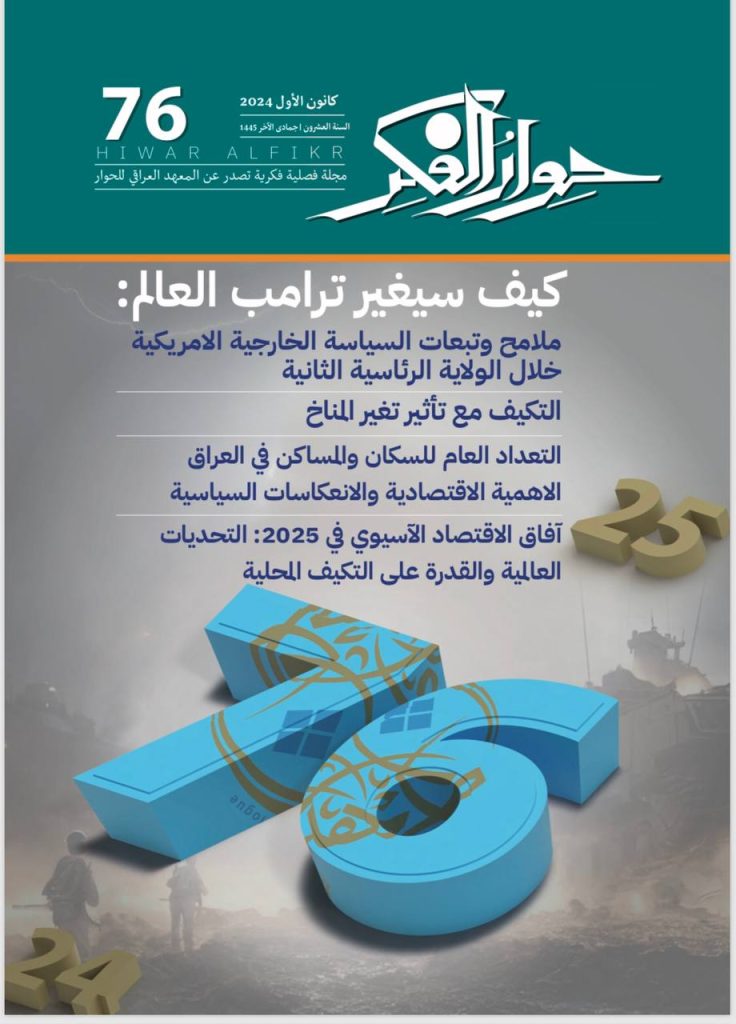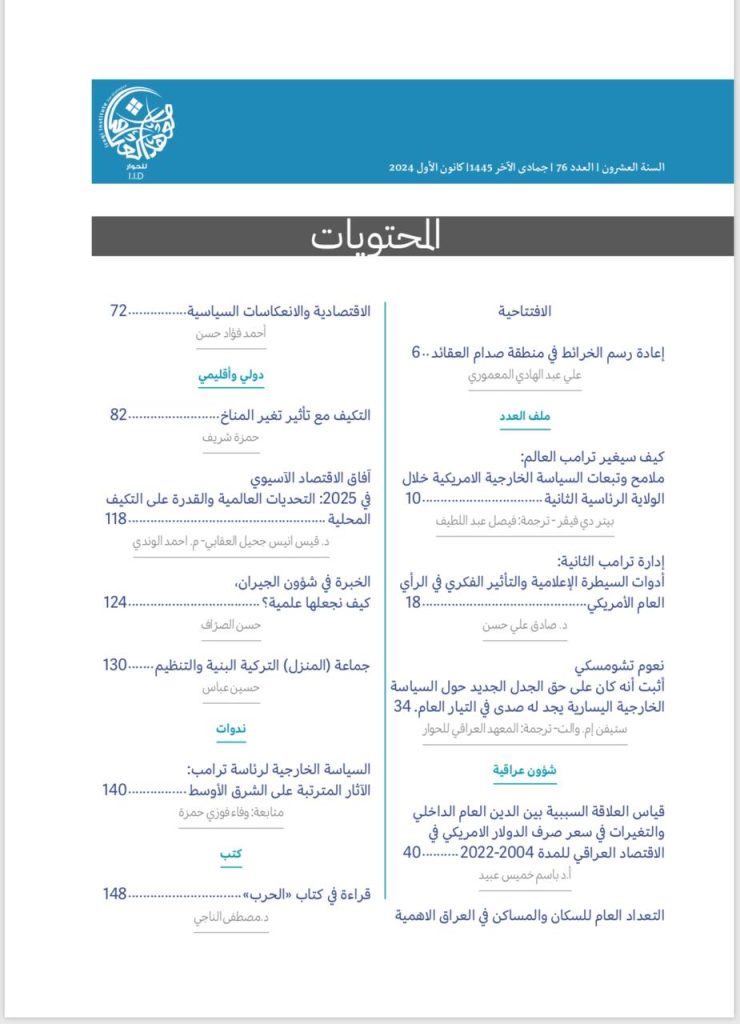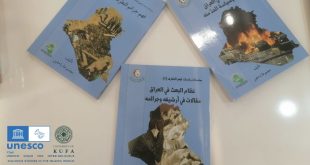Dr. Hassan Zuhair Al-Sarraff, a member of the UNESCO Chair Office, published an article titled “Expertise in Neighborly Affairs: How to Make It Scientific?” in Issue 76 (December 2024) of the quarterly journal Hiwar al-Fikr (Dialogue of Thought), issued by the Iraqi Institute for Dialogue.
In this article, Dr. Al-Sarraff pointed out that Iraq’s research, academic, and media sectors lack genuine experts in the affairs of Iraq’s neighboring countries and the region as a whole. This shortfall underscores the need for decision-makers in higher education and scientific research to prepare specialists in regional and global affairs. Such expertise is crucial for equipping Iraq’s diplomatic apparatus with precise, scientifically grounded information and fostering a sound national public opinion in addressing issues related to Iraq’s neighbors.
To prepare such specialized cadres, Dr. Al-Sarraff proposed two suggestions:
1.Combining Foreign Language Studies with Political Science:
He suggested forming partnerships and twin agreements between colleges of foreign languages and political science as an optimal approach in line with the regulations and policies of the Ministry of Higher Education.
2.Establishing a College Specializing in Middle Eastern Studies:
This proposed college, potentially named the “College of Middle Eastern Studies,” would include academic departments specialized in the study of neighboring geography and the Middle East, this college includes departments that teach the languages of neighboring countries alongside fundamental concepts in political science
Dr. Al-Sarraff concluded by emphasizing that studying the affairs of neighboring countries and the Middle East is not limited to times of conflict, competition, or divergence. On the contrary, it plays a significant role in fostering peace, coexistence, and harmony.
Translated by Razan Al-Sultany
 UNESCO CHAIR For Inter-Religious Dialogue Studies in The Islamic World
UNESCO CHAIR For Inter-Religious Dialogue Studies in The Islamic World
